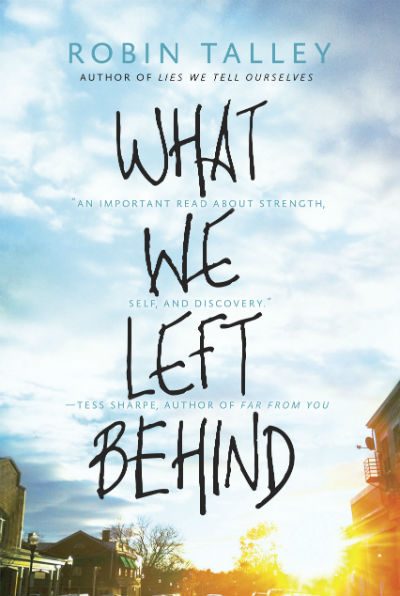Gretchen is the good-bi girl. Bi as in binary. Her girlfriend Toni wants to bypass the gender binary altogether, and Gretchen wants to be totally supportive.
Just because she’s a lesbian doesn’t mean she can’t be bi-curious.
There is (bi)nary a gender for Toni Fasseau, an eighteen-year-old who’s determined to reform the gender spectrum and reject all its prohibitive pronouns.
Then there’s Gretchen Daniels, Toni’s girlfriend, whose identity as a female and as a lesbian is much more queer-cut.
Toni and Gretchen have been dating for two years and are having a gay old time, thanks in large part to their unspoken policy of Don’t Ask, Do Tell. Toni can tell Gretchen anything, even that Toni’s questioning her (hir) identity, and Gretchen doesn’t ask questions.
Nor does she tell Toni that she’s decided to attend college in New York, even though she’d agreed to go to school in Boston to be close to Toni, who’s been accepted at Harvard. Toni feels jilted―it’s bad enough having to live with the letters LGBTQ; now Toni has to deal with NYU too?
The separation will engender the endangerment of their relationship, Toni is sure of it. Toni is less sure of whether to identify as Jo College or Joe College―or some transmutation thereof. At Harvard, Toni befriends a group of transmen who perceive gender as more than a label or a fable. But Toni remains opposed to anything binary, insisting that opposites detract from individuality.
It’s fine for Toni to put on binders. Blinders, not so much. But both Toni and Gretchen don the latter, and it soon becomes apparent that the appropriate gender identity for Toni is maelstrom. Their separation isn’t the only thing giving Gretchen anxiety. “What does it mean if your girlfriend is a guy?” she frets. “Do you still get to tell people you’re a lesbian?” And if Gretchen can’t identify as a lesbian, if she can’t identify as Toni’s girlfriend, does that make her the victim of identity theft?
Toni’s identity is in need of discovery. Gretchen’s is in need of recovery. Their relationship, meanwhile, is experiencing its own identity crisis. Will it make the transition from unsound to unbreakable?
What We Left Behind is written with the deft heft of a writer who’s queerly done her research. Author Robin Talley codifies the genders on the spectrum, edifies readers on gender nonconformity, and never simplifies gender identity.
One drawback of being all-inclusive is that Toni is drawn as absurdly ambivalent. Toni’s attraction to cisgender girls is the only non-issue for the character. But Toni is unable to recognize the versatility of gender as a bonus rather than an onus, or to embrace the idea that identity can change day to day and vary gay to gay. Instead, the character does more to deplore gender than to explore it, upend it, or transcend it.
Gretchen’s ambivalence is more understandable―and more understated. It is when the characters and the concepts are at their subtlest that the book is at its strongest.
Talley is a storyteller of substance and significance. While the words in this story don’t always come out right, I am grateful for her endeavors to enhance the visibility of queer protagonists in young adult literature and advance the viability of diversity in the genre. So even though it may be difficult to identify with Gretchen or Toni, it isn’t difficult to identify Talley as a writer who puts the out in clout.
